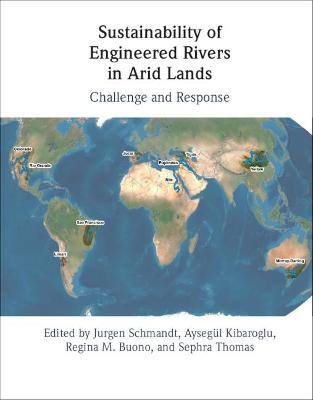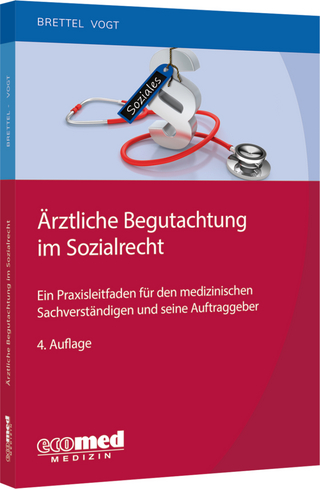
Sustainability of Engineered Rivers In Arid Lands
Cambridge University Press (Verlag)
978-1-108-41703-7 (ISBN)
This interdisciplinary volume examines how nine arid or semi-arid river basins with thriving irrigated agriculture are doing now and how they may change between now and mid-century. The rivers studied are the Colorado, Euphrates-Tigris, Jucar, Limarí, Murray-Darling, Nile, Rio Grande, São Francisco, and Yellow. Engineered dams and distribution networks brought large benefits to farmers and cities, but now the water systems face multiple challenges, above all climate change, reservoir siltation, and decreased water flows. Unchecked, they will see reduced food production and endanger the economic livelihood of basin populations. The authors suggest how to respond to these challenges without loss of food production, drinking water, or environmental health. The analysis of the political, hydrological, and environmental conditions within each basin gives policymakers, engineers, and researchers interested in the water/sustainability nexus a better understanding of engineered rivers in arid lands.
Jurgen Schmandt is Professor Emeritus of Public Affairs at the University of Texas and Distinguished Fellowat the Houston Advanced Research Center where he developed their sustainability program. He specializes in water policy and sustainable development. He previously worked at the German Academic Exchange Service, Organisation for Economic Co-operation and Development (OECD) and Harvard University. He used his work on water and drought in the Rio Grande basin and Northeast Brazil to start the SERIDAS project in 2013. He has published books and articles on technology and society, environmental regulation, climate change, water policy and sustainable development. Aysegül Kibaroglu is Professor of International Relations at MEF University, Istanbul. She was a visiting professor at the University of Texas, Austin. She is the author of Building a Regime for the Waters of the Euphrates-Tigris River Basin (Brill, 2002) and co-editor of Turkey's Water Policy (Springer, 2011). She has published in International Negotiation, Water International, Water Policy, International Journal of Water Resources Development and Global Governance. She is a founding member of the Euphrates Tigris Initiative for Cooperation (ETIC). Regina M. Buono is a nonresident scholar at the Center for Energy Studies at Rice University's Baker Institute for Public Policy and a doctoral candidate in public policy at the Lyndon B. Johnson School of Public Affairs at the University of Texas, Austin. She is a co-editor of Regulating Water Security in Unconventional Gas and Oil (Springer, 2019) and has published in Water International, Water Policy, Environmental Science and Policy, and Environmental Science and Technology. Sephra Thomas is a recent graduate from the University of Texas, Austin. She completed her Master of Public Affairs and Master of Science in Environmental and Water Resources Engineering. Through her graduate career, she has edited and published a report on the sustainability of the Rio Grande/Rio Bravo, developed a MOOC for the NAIAD2020 project at IHE Delft, and researched the intersectionality of water management in Mexico City, Chicago, and the Nile Basin. She hopes to continue her career in water resources management in the intersection between policy and engineering.
Introduction; 1. Introduction: Sustainability of Engineered Rivers in Arid Lands Jurgen Schmandt; Part I. Challenge: 2. Global Climate Change and the Rivers Gerald R. North; 3. Reservoirs: Design, Functions, Challenges George H. Ward; 4. Depletion of Groundwater: the Surface-Groundwater Connection Stephanie Glenn; 5. Endangered Food Security Olcay Unver, Eduardo Mansur and Melvyn Kay; 6. Declining Environmental Flows Stephanie Glenn and R. James Lester; Part II. Engineered Rivers: Past, Present and Future: 7. The Nile River Basin Muhammad Khalifa, Sephra Thomas and Lars Ribbe; 8. The Euphrates-Tigris River Basin Aysegül Kibaroglu; 9. The Yellow River Basin James E. Nickum and Jia Shaofeng; 10. The Murray-Darling River Basin Daniel Connell; 11. The São Francisco River Basin Antonio R. Magalhães, Eduardo Sávio and P. R. Martins; 12. The Limarí River Basin Alexandra Nauditt, Justyna Sycz and Lars Ribbe; 13. The Colorado River Basin Douglas S. Kenney, Michael Cohen, John Berggren and Regina M. Buono; 14. The Rio Grande/Río Bravo River Basin George H. Ward and Jurgen Schmandt; 15. The Jucar River Basin Jose Albiac, M. T. Kahil and Encarna Esteban; Part IV. Response: 16. River Basin Management and Irrigation François Molle; 17. 'Intelligent' Water Transfers Eduardo Sávio, P. R. Martins, Antonio Magalhães and James E. Nickum; 18. Better Basin Management with Stakeholder Participation Jurgen Schmandt and Aysegül Kibaroglu; Part V. Conclusion: 19. Conclusion: What We Found and What We Recommend Aysegül Kibaroglu, Jurgen Schmandt and George H. Ward; Index.
| Erscheinungsdatum | 17.09.2021 |
|---|---|
| Mitarbeit |
Stellvertretende Herausgeber: Regina Buono, Sephra Thomas |
| Zusatzinfo | Worked examples or Exercises |
| Verlagsort | Cambridge |
| Sprache | englisch |
| Maße | 219 x 285 mm |
| Gewicht | 1010 g |
| Themenwelt | Medizin / Pharmazie ► Medizinische Fachgebiete ► Arbeits- / Sozial- / Umweltmedizin |
| Naturwissenschaften ► Biologie ► Ökologie / Naturschutz | |
| Technik ► Umwelttechnik / Biotechnologie | |
| ISBN-10 | 1-108-41703-5 / 1108417035 |
| ISBN-13 | 978-1-108-41703-7 / 9781108417037 |
| Zustand | Neuware |
| Informationen gemäß Produktsicherheitsverordnung (GPSR) | |
| Haben Sie eine Frage zum Produkt? |
aus dem Bereich


